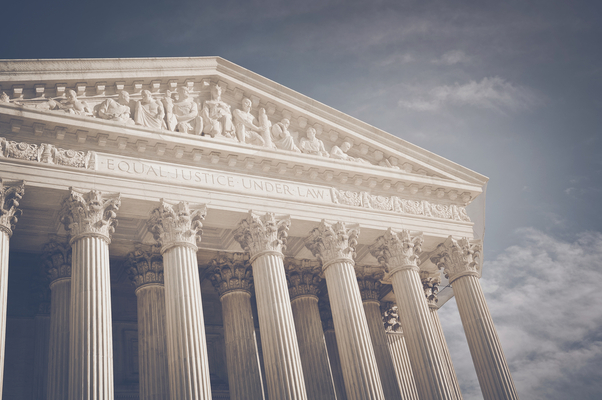With new Justice Ketanji Brown Jackson on the bench, the Supreme Court is back from summer recess and kicked off a new term Monday morning.
The Court’s previous term ended with massive outcry from pro-abortion activists and massive cheer from pro-life proponents. The Roe v. Wade ruling shocked the nation, and has since allowed abortion to become a focal point in this November’s elections.
This session, the highest court will address issues such as affirmative action, minority representation, the way federal elections are held, immigration, and LGBTQ protections vs. religious rights.
The court began the term Monday with an environmental case surrounding the EPA’s authority over regulating wetlands under the Clean Water Act.
In a consistent breach against constitutional rights, the executive branch has expanded beyond its authoritative scope recently by imposing its will onto the judicial branch.
Aside from Biden repeatedly threatening to pack the court in order to shift the ideological make-up in his favor, policy is conducted without regard for the Constitution.
Just last week, the administration walked back its student loan forgiveness program after being sued by seven states. The plan is expected to be shut down by the courts.
Early this year, the Supreme Court shut down Biden’s workplace vaccine mandate. In June, the Supreme Court said that the EPA must stay within its bounds as a federal agency, ruling that the agency doesn’t have the power to regulate carbon emissions.
The Biden administration has approached many political ideas without taking into consideration the rights of Americans.
In these circumstances, the Constitution is almost seen as an afterthought with hopes that the courts allow it to be sidestepped. In some cases the courts have allowed for the infringement of our rights, and in other cases, they have shown their commitment to preserving these fundamental rights.
An upcoming case involves the administration's southern border agenda. A lower court ruled that the Biden administration cannot set new enforcement priorities for immigrants entering the U.S. or living here illegally. The Supreme Court refused to block the ruling in July, and will take up the case in December.
The nation’s highest court only takes between 100 to 150 cases per year out of the 7,000 cases it is asked to review, according to reports.
Power abuses can run rampant until the courts are able to take up cases and strike down unlawful orders. We rely on this system of governance, but it can also be taken advantage of when orders from Biden and other leaders cross the constitutional line.
By adding term limits, a balanced budget and power restraints to the federal government, a Convention of States will become a preventative measure to ensure these power abuses cease.
If you’re new to Convention of States, we would love to have your support and encourage you to sign the petition below.






